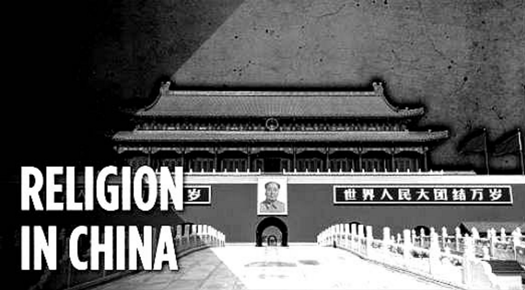
Among the measures expected to be adopted when the Chinese government enacts regulations in religion are the greater control of finances, monitoring theology students who go overseas and applying more severe penalties for people who rent or provide space to illegal churches. This would be the first change in more than a decade to these regulations and it also refers to restrictions on religious schools and limits on access to foreign religious writings, even online.
China has been a multi-religion country since the ancient times. Confucianism is an indigenous religion and is the soul of Chinese culture, which enjoyed popular support among people and even became the guiding ideology for feudalism society, but it did not develop into a national belief. According to a latest survey, 85 percent of Chinese people have religious beliefs or had some religious practices and only 15 percent of them are real atheists. (The real atheists here refer to those who do not have faith in any religions nor had any activities related to religions or folk customs.) Buddhism has the widest influence in China. The other major religions are Taoism, Confucianism, Islam and Christianity.
The Communist Party in China has stayed true to its Marxist roots throughout its history, and it remains officially atheistic. Despite the Communist Party’s efforts to control and sometimes limit it, religion in China has blossomed over the past period. But many Chinese worship outside the official churches and temples, in so-called illegal churches and that’s what most disturbs the members of the Communist Party. They are worried about the possible weakening of the authority of the state.
A draft of the new regulations was published in September, several months after Mr. Xi convened a rare leadership conference on religious policy and urged the party to be on guard against foreign efforts to infiltrate China using religion. After publishing this draft, 24 prominent pastors signed a public statement in which they estimated these measures as harmful and confusing.
The new regulations follow the enactment of a law on nongovernmental organizations that increased financial scrutiny of civil society groups and restricted their contact with foreign organizations in a similar way. Also, there is an aggressive campaign to limit the visibility of churches.
But there is another side to this story. The government wants by those regulations to have a closer supervision of religious life in China and to protect holy sites commercialization. Mr. Xi wants to limit the existence of illegal churches and foreign influence in China but he doesn’t deny that religion exists to a large extent.
The new regulations are more explicit about the party’s longstanding requirement that all religious groups register with the government, and the most vocal opposition so far has come from Protestant leaders unwilling to do so. The regulations also say for the first time that religion must not harm national security, which could give security services in China greater authority to target spiritual groups with ties overseas. For example, Chinese officials have already banned residents from attending some religious conferences in Hong Kong.
James Tong, a political-science professor at the University of California, said that past regulations in China have not harmed the growth of religion in China and that he doesn’t think these will, either.
Photo Credits: World News
